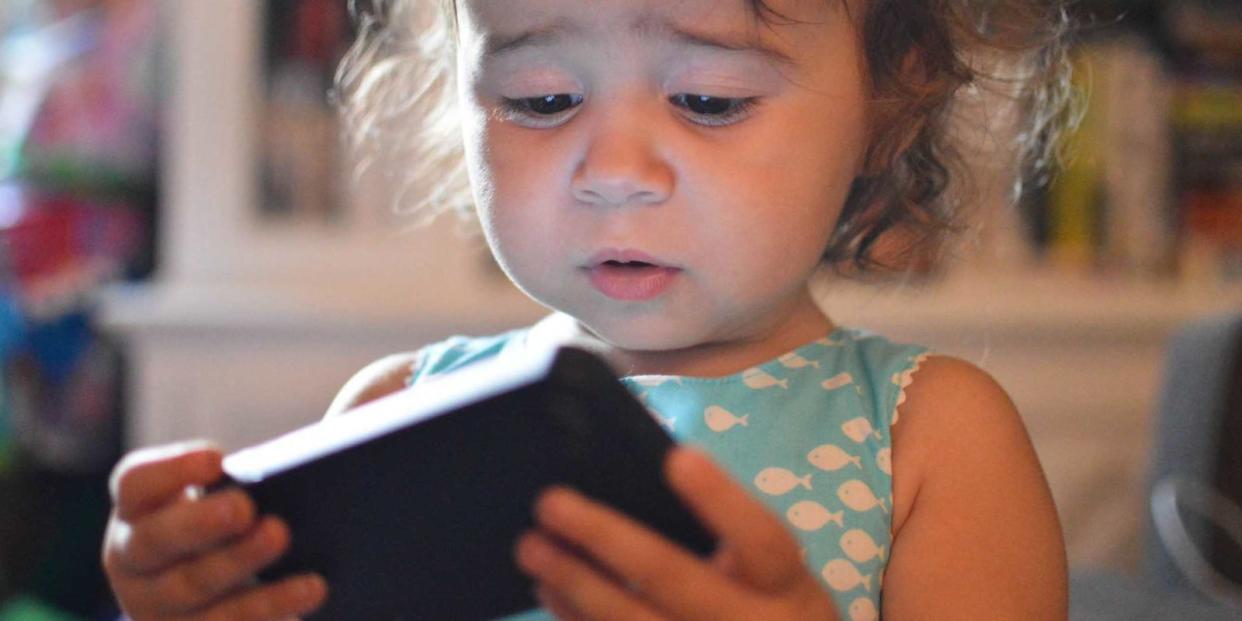New Study Reveals Alarming News About Toddlers Who Use Smartphones

You may want to think twice the next time you decide to hand over your smartphone or tablet to your toddler. According to a new study published in Scientific Reports, daily touchscreen use can have some serious effects on the sleeping habits of young children.
Researchers found that every hour a child spends on a mobile device could result in about 15 minutes of lost sleep a day, a finding that's particularly alarming for babies and toddlers, since sleep can strongly impact their development.
"One surprising finding was that despite sleeping more on average during the day, infants and toddlers who spend more time on a touchscreen still spend less overall time sleeping," said Celeste Cheung, co-author of the study, according to Real Simple. Cheung works as a research fellow at Birkbeck University of London, where the research was conducted. "Thus, they were not able to 'catch up' with their sleep during the day."
The study, which compiled survey information from 715 parents, focused on the frequency of daily touchscreen use in infants and toddlers between 6 and 36 months. Parents were asked to take an online survey, reporting on their children's sleep patterns and screen time. Researchers then analyzed the data, controlling for gender, age, the mother's education level, and TV time. The results? Around 92 percent of toddlers (25 to 36 months) used a digital screen every day, and on average, the children used the devices for about 25 minutes per day.
One possible scientific explanation for how touchscreen use can result in diminished sleep? The blue light from the screens can suppress melatonin, a hormone linked to the regulation of circadian rhythms. According to the American Academy of Pediatrics, children under 18 months should avoid any kind of screen time, and children ages 2 to 5 should have no more than an hour of screen time a day.
It's not all bad news though: The study also found that kids who actively used touchscreens (swiping and playing games) developed fine motor skills faster than screen-free toddlers. Of course, more research needs to be conducted on the connection between touchscreen devices and the sleep patterns of young children. But in the meantime, as Cheung says, "Parents should not be overly concerned, but be aware of the potential impact of touchscreen devices-both positive and negative."
(h/t Real Simple)
Follow Woman's Day on Instagram.
You Might Also Like